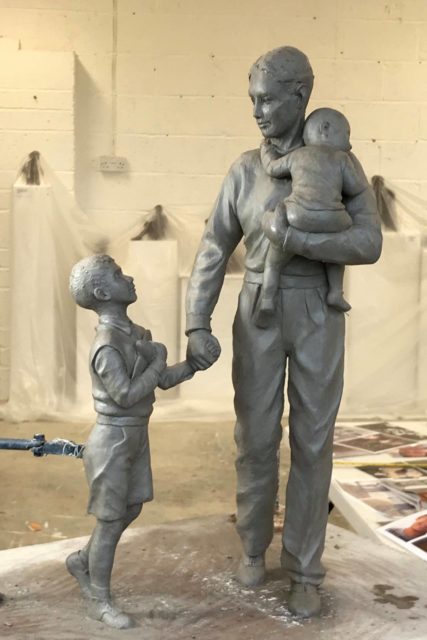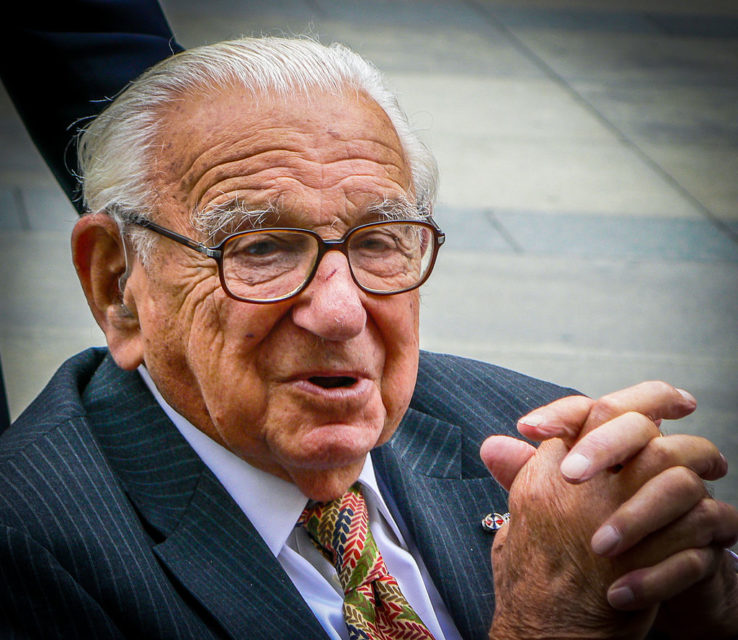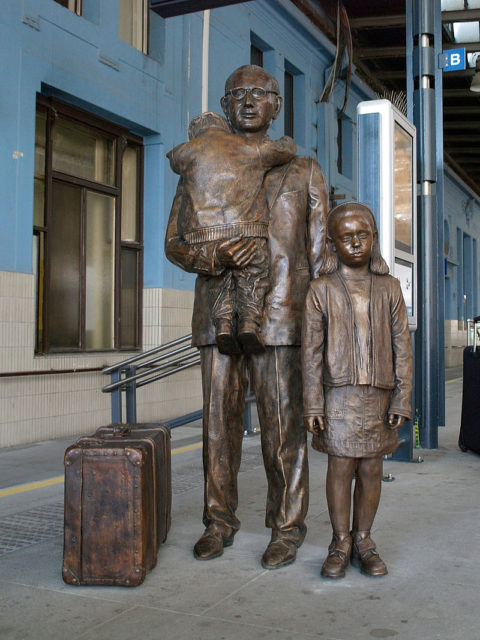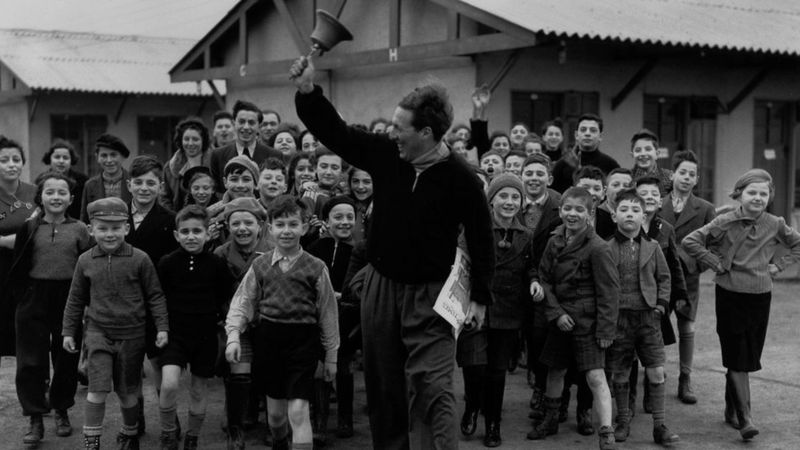Meet a British war hero who rescued hundreds of Jewish children from the Nazis. The Trevor Chadwick Memorial Trust is crowdfunding a bronze statue of its namesake.
Also known as the “Purfleet Schindler”, Chadwick rescued hundreds of young souls during Hitler’s takeover of Czechoslovakia. The Trust need tens of thousands of pounds before the end result can go up in 2022.
Chadwick isn’t a household name but he’s certainly known about in Swanage, the Dorset coastal town where he grew up. Working with a team, he arranged escape routes via the famous “Kindertransport” network in 1939, at great personal danger to himself.
Artist Moira Purver is responsible for the statue. So far she’s made an 18 inch clay model and completed other preliminary work. A recent update on the Trust’s Facebook page shows wax casts of Chadwick carrying a young child, plus another young person who will be positioned by the hero’s side.

You can donate here –
The Trevor Chadwick Memorial Trust
Chadwick was a teacher of Latin who traveled to Prague in 1938. The Forres school where he worked sent him to bring back a couple of refugee boys.
The Munich Agreement, signed the same year by British PM Neville Chamberlain amongst others, handed Hitler Czechoslovakia in a bid to avert war. Its citizens faced the spectre of fascism, with little ones being forced into camps. Various organizations attempted to evacuate potential victims before it was too late.

Banker Nicholas Winton (later Sir) and Doreen Warriner of the British Committee for Refugees from Czechoslovakia (BCRC) were working to keep children out of harm’s way. Chadwick agreed to join them, becoming a lynchpin once Winton had to return home. He took on the trickiest of tasks by negotiating exit passes with the Gestapo.
As relayed by History Extra, Chadwick said: “I remember putting on the screaming table-thumping acts – always reliable with these louts – and demanding an interview with the Kriminalrat.” The Kriminalrat – a name English speakers might find apt – translates as “detective Nazi”, or in this case section chief.
Chadwick also forged documents. Another surprisingly tough job involved dealing with UK Home Office bureaucracy. Chadwick would obtain a medical certificate, plus a guarantee of £50 per head – over £3,000 in today’s money according to History Extra – before each child could cross.
Overall, 669 children made it to England through Chadwick and co’s efforts. They traveled on 8 trains. He then fled the scene himself, when the enemy grew suspicious. The Nazis claimed Czechoslovakian territory within weeks.
The Trust’s crowdfunding page writes, “had he been caught, he would have been arrested and possibly sent to a detention camp.”
For decades the activities of Nicholas Winton and his group went unrecognized by the general public. Then Winton was surprised on national TV as part of the ‘That’s Life’ programme in the Seventies. A knighthood came in 2003. Statues of the high profile figure have since been erected in Maidenhead, and of course Prague.

The Trevor Chadwick Memorial Trust are now hoping a similar tribute can be paid in Swanage. For years after the ‘That’s Life’ broadcast his name was under the radar. Not that Winton didn’t mention it. As the BBC writes, he “insisted Mr Chadwick, who stayed in Prague to organise the evacuations, had been the real hero.”
Chadwick passed away in 1979. The Daily Mail reports the teacher turned savior was “known for his friendly and personable manner that helped put children at ease at the most terrifying time of their lives.”
Another Article From Us: Does this German Ship hold a Famous Russian Treasure…?
The biggest part of his legacy lies in those who survived the Nazis because of him and other brave fighters. Movie director Karel Reisz (1926 – 2002) and politician Lord Alf Dubs owe everything to the Kindertransport. Noted poet Gerda Mayer wrote of Chadwick in an excerpt highlighted by the Trust, “He certainly was a superman.”
